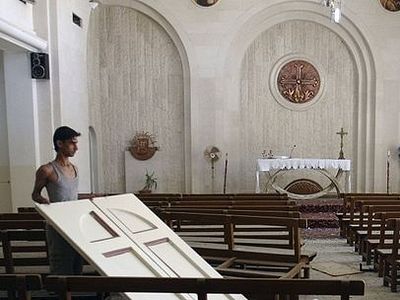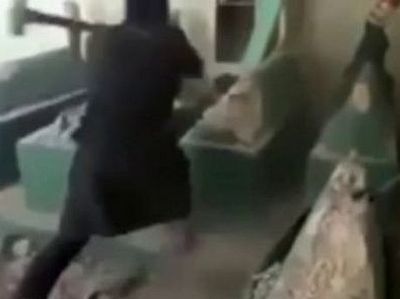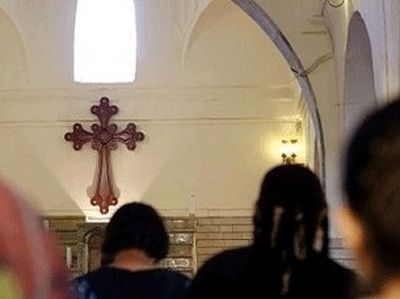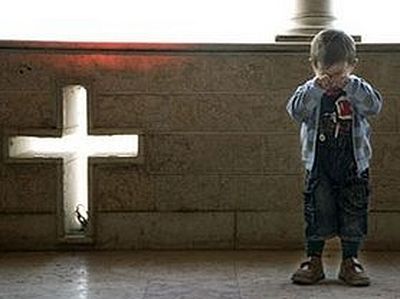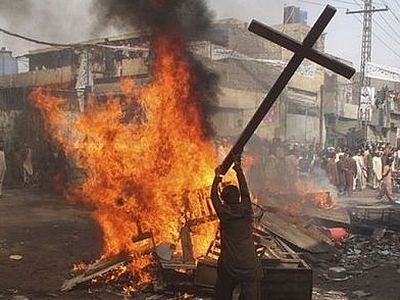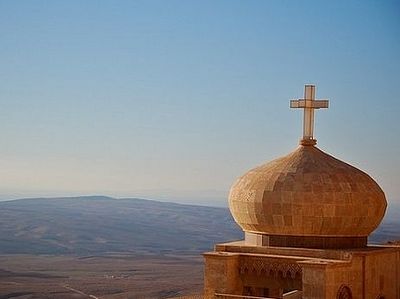August 7, 2014
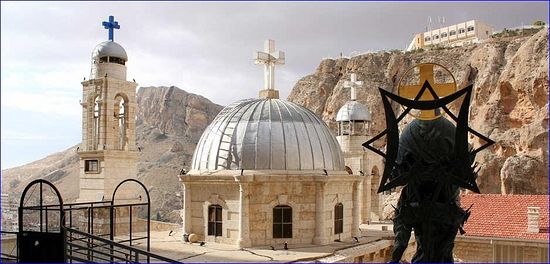
Assyrian Christians are the indigenous people of a contiguous region spanning northeast Syria, southeast Turkey, northwest Iranand northern Iraq. Their primary religious denominations are the Assyrian Church of the East, the Chaldean Catholic Church and the Syriac Orthodox Church. Since the collapse of the Ottoman Empire and the genocide and mass deportation of Assyrians from these homelands by Turkish and Kurdish forces, the Assyrian people have been unable to secure their own safety and freedom. The failed bid for a state of their own -- originally pledged and mandated by the British Empire -- exposed them to the Simele massacre and the expulsion and decimation of Assyrian leadership, both secular and religious.
Marginalized for asserting their ethnicity under the racialist Baathist tyrannies of Saddam Hussein and the Assad family, Assyrians now face persecution for their religion at the hands of Islamists, who are fighting for control of the collapsing states of Iraq and Syria. The failure of Middle Eastern states to establish democracy can be felt acutely in the security crisis facing Assyrians and other minorities.
As fragmented and fractious militias whose loyalty is to a warlord, cleric or sect hold sway over the region, Assyrian Christians have been left tragically exposed by the absence of state protection or political and legal recourse. Shorn of these auspices, lacking the foreign patronage fueling many of the aforementioned militias, and bereft of any organized local security forces made up of members from their own communities, Assyrians have been unable to put up any effective, meaningful resistance to the onslaught against them.
Following the invasion and occupation of northern Iraq by the Islamic State -- formerly known as the Islamic State of Iraq and the Levant (ISIS) -- tens of thousands of Assyrian Christians have fled their homes. They have been confronted with kidnap, rape and murder at the hands of the encroaching jihadist forces, a pattern of brutal persecution that mirrors events in Syria.
As a result of the Islamic State's invasion and occupation of Mosul, none of the city's pre-2003 Christian population -- estimated at 60,000-130,000 -- remains. The Islamic State marked the homes of known Christian families with an "N" (in Arabic) for Nasarah, the Quranic term for Christians. The historical parallel for property tagging according to ethnicity need not be mentioned.
On July 18, a decree was announced from the loudspeakers of Mosul's mosques: By 9am on July 19, the city's remaining Christians were to convert to Islam, pay the jizya -- a historical tax levied by Islamic rulers over non-Muslims -- or face death. That decree led to a total exodus of Christians from the city. They were not allowed to take any belongings with them. Mosul's Christian buildings have now been closed, destroyed or converted into mosques. Mosuleans have largely fled to Kurdish-held territories in the Nineveh Plains or to Dohuk and Erbil, where they are in urgent need of aid.
Assault on the Assyrian Town of Qaraqosh
The Assyrian town of Qaraqosh, located in the Nineveh Plains around 32 kilometers from Mosul, was emptied of refugees and almost all of its inhabitants as the Islamic State assailed it on June 26. Church bells and the cries of citizens rang as a warning. Around 40,000 people headed north, often with nothing but clothes on their backs. The migration was desperate and chaotic. Thousands of cars crammed with luggage, many of them carrying up to nine passengers. Those without transport jogged through the spaces between vehicles, carrying children in their arms. Their destination was entirely uncertain.
The few men who stayed to defend their houses and churches, and those who could not make it out, were left in a grave situation. The supply of water and electricity to Qaraqosh had been cut. This video reportage provides vivid footage of their precarious situation and the pandemonium of the flight. A few days after its desertion, Qaraqosh resembled a ghost town.
The current occupation of Qaraqosh by Peshmerga, the Kurdish armed forces, could provide a chance for residents to return, depending on the extent of the Kurdistan Regional Government's (KRG) commitment to defending the town from further attack and providing services for it. More broadly, the Peshmerga's incursion into large sections of northern Iraq poses many questions as to their long-term political and administrative designs for minority-dominated villages and towns. The area surrounding Qaraqosh, and all of the territories along the shifting border between Kurdistan and the Islamic State, are in a state of uncertainty. On July 21, the Islamic State seized a 4th century Syriac monastery near Qaraqosh and expelled the monks living there.
These recent events follow a broader pattern of terror unleashed against Iraqi Christians since the invasion of Iraq in 2003. Over 73churches have been attacked or bombed across the country. Dozens of priests have been kidnapped or beheaded. Thousands of Assyrians have been victims of violence perpetrated by Islamist militias, and several regions and cities, including Baghdad, have been largely emptied of their indigenous Christian inhabitants.
Iraq's Failures
As the central authority in Iraq collapsed in the aftermath of the 2003 invasion, leading to a prolonged violent tussle between militias in and around Baghdad, the extent of the exposure of Assyrian communities to attack became desperately clear. Foreign and internal sectarian sponsorship -- of which minorities have none -- have spurred the efforts of Sunni and Shia militias to tear the fabric of Iraqi society apart. Though sectarian tensions are often said to have peaked between 2006-08, owing largely to non-contextual statistical mapping of incident rates, attacks on Christians have continued unabated throughout the decade following the Iraq War.
On October 31, 2010, an affiliate of the Islamic State in Iraq, the Islamic State's name at the time, launched a deadly attack on the Our Lady of Salvation Cathedral in Baghdad, killing 58 people. It took Nouri al-Maliki, Iraq's prime minister, ten days to visit the site of the massacre. His use of the word "Jaleya" to describe Iraqi Christians -- a term often used to refer to a group of outsiders or foreigners who have established a community locally -- is symbolic of Iraq's failures: the absence of an Iraqi civic identity; and the non-recognition of its constituent peoples as citizens of equal worth, whose freedom and security are guaranteed by the government and judiciary.
A similarly grim fate is being forced upon Assyrians and other minorities in Syria, as large swathes of that country fall to militants. More than half of Iraq's Christians have fled the country, and the same exodus is being repeated in Syria. For the first time in history, there are more Assyrians in the diaspora than in their ancient homelands of Iraq and Syria.
The Way Forward
For several years, the establishment of a semi-autonomous region in the Nineveh Plains has been advocated by Assyrian lobby groups as a solution to the crisis facing minorities. A plan to create a new province in the plains -- the only area of Iraq where minorities constitute a demographic majority -- was approved on January 21. This created a window of possibility for the advancement of a safe haven for Iraq's most troubled peoples.
Since then, a very different picture of the region has emerged. The KRG now controls most of the plains. Many Christians escaping violence across the country are fleeing into those territories. A self-governing province in the Nineveh Plains would allow Assyrians to legitimize their place in the region and control their own destiny, living securely alongside fellow ethnic communities.
In exchange for the right to maintain control over territories it has seized from the collapsing state of Iraq, the KRG must demonstrate the civic and political sophistication that has been absent from the country's history. This means the full granting of cultural, linguistic and administrative rights to local peoples, as well as allowing citizens of all ethnicities to participate in formally sanctioned and organized security forces. The gradual confiscation of Assyrian land and villages, the privileged awarding of economic and construction opportunities to Kurds, and the political intimidation and persecution of non-Kurdish politicians -- all of which have been unfortunate features of the KRG -- must end.
The recent withdrawal of Kurdish forces from Sinjar in the face of Islamic State advances, which has exposed Yezidis and Christians to expulsion and terror, poses serious questions regarding the experience, competence and strategic vision of Iraqi Kurdistan as an entity, and the Peshmerga as its army. This further illustrates the need for any dominant authority in the area to consider delegating powers of security to communities in need of self-defense capabilities.
The Kurds have suffered greatly at the hands of Arab hegemony, but they have not suffered alone. Assyrians and Kurds fought together to liberate the north from Saddam; Yezidi communities and Assyrian villages and churches were also razed during the al-Anfal campaign. It was under the auspices of the no-fly zone of 1991 that Kurdistan was able to set the groundwork for what it has become today, and it must share the bounty of that harvest. As Iraqi Kurdistan enlarges its territory and status, its responsibility toward its inhabitants grows. Its non-Kurdish subjects must become equal citizens, with full individual rights and communal representation.
The Sykes-Picot agreement will not survive its centenary. The geopolitical and national boundaries of the Middle East are being torn apart. If we do not act immediately to protect and support the minorities of Iraq and Syria during this period of turmoil, and work toward their long-term flourishing, they will be extirpated. An alternative to the profound uncertainties that accompany forced migration must be provided. Even Sweden, once renowned for its acceptance of Middle Eastern migrants, has reversed its policy in recent years. France has only offered cases of asylum in response to high-profile events. As understandable as the impulse to flee in the face of chaos and violence is, minority peoples that have long relied on solidarity and cooperation to buttress their communities suffer greatly from the draining of their numbers.
The Islamic State may declare that it is murdering for a religious cause, but Christianity as a system of belief would outlive a savage destruction in the Middle East. The life of indigenous Mesopotamians in their hereditary habitat is irreplaceable. Villages and towns that hold the presence of time and extend rituals and ways of life passed down through generations; the vernacular richness of spokenAramaic dialects born of shared experiences in the same places; and a disappearing architectural legacy -- this living history, the very source of its own future, is at stake. The tragedy of this loss would never be lifted from the conscience of the world. The time to act is now.
